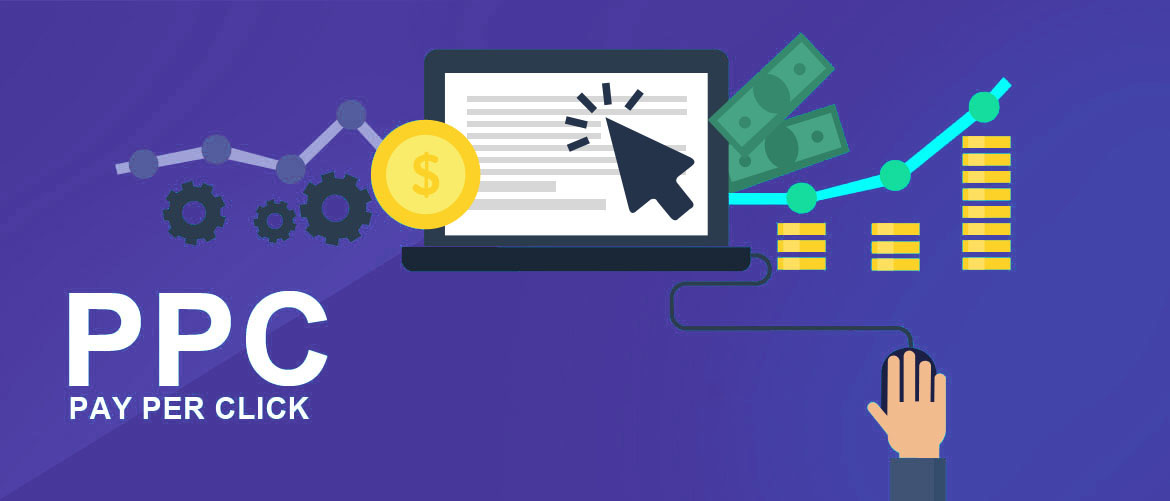
03 Jun What is PPC?
PPC an acronym for pay-per-click, a type of online marketing in which advertisers pay a fee each time one of their ads is clicked. Essentially, it’s a way of buying traffic to your site, rather than attempting to “earn” those visits organically.
Search engine advertising is one of the most popular forms of PPC. It allows advertisers to bid for ad placement in a search engine’s sponsored links when someone searches on a keyword that is related to their business offering. For example, if we bid on the keyword “Local PPC Marketing,” our ad might show up in the ‘sponsored links’ box on the Google results page.
Every time our ad is clicked, sending a visitor to our website, we have to pay the search engine an advertising fee. When PPC Marketing is done properly, the fee is marginal, because the visit is worth more than what you paid for it. In other words, if we pay $2 for a click, but the click results in a $400 sale, then we’ve made a hefty profit.
A lot goes into building a winning PPC campaign: from researching and selecting the right keywords, to organizing those keywords into well managed campaigns and ad groups, to setting up PPC landing pages that are optimized for conversions. Search engines reward advertisers who can create relevant, intelligently targeted pay-per-click campaigns by charging them less for ad clicks. If your ads and landing pages are useful and satisfying to users, Google charges you less per click, leading to higher profits for your business. So if you want to start using PPC, it’s important to learn how to do it right.
Is PPC right for me?
Should PPC become a revenue source for your business? Analyze the pros and cons of PPC advertising to determine if your business can find a PPC as profitable form of online marketing.
Here are the Pros of Pay-Per-Click (PPC) Advertising:
- You need not be a genius in computer and technology to be able to run this ad campaign.
- Immediate results are seen after a few days.
- No need to make a website conform to the SEO rules.
- Nothing to lose even if you do not top the pages of different search engines.
- You can still always choose Pay-Per-Click (PPC) advertising.
- You can make use any search engine available.
- You can type in any keyword you like.
Cons of Pay-Per-Click (PPC) Advertising include:
- Fixed payments every month to the search engine you choose.
- Pay for each click received by your website.
- At times, visitors are just competitors or people just clicking around on search engines.
- This type advertising should only be used temporarily.
- Pay-Per-Click (PPC) pricing can be costly for long periods of time.
How Can Pay-Per-Click (PPC) Advertising Increase Traffic, Leads and Sales?
PRE-QUALIFIED TRAFFIC
All visitors of your website are already considered as a qualified consumer or buyer of your product. Pay-Per-Click (PPC) advertising leads your customers to you for a lesser cost.
INSTANT EXPOSURE
Pay-Per-Click (PPC) search engines enable you to get your desired results fast. They will have your web- site live within just a few hours which means immediate increase in sale.
CONSISTENT TOP LISTINGS
This is to get your website on top of the sponsored search results for free. You just have to choose the keywords related to your site and business and place them within your web pages.
Pay-Per-Click advertising enables advertisers to control their PPC campaigns. Advertisers have effectively targeted their audience and set their own price per click. Pay-Per-Click (PPC) advertising provide the platform to identify the desired audience by geographic setting, topic and industry.
PPC advertising is keyword based—this means that it is based on the search term that a user enters into a search engine. A search term can have one word or be made up of many words. Sometimes a multiword search term is referred to as a “key phrase” or “keyword phrase.” Advertisers target those keywords for which they want their advertisement to appear.
PPC offers huge opportunities to businesses and continues to evolve
PPC advertising continues to evolve, and formats available range from simple text adverts through to Flash banners and even video adverts. PPC advertising revolutionized the online advertising industry, and today, PPC advertising generates 95% of Google’s revenue.
For the advertiser, the beauty of PPC advertising on search engines is that their advertisements are displayed when potential customers are already expressing intent—they are searching for a product or service. It allows advertisers to present their offering to a potential customer who is already in the buying cycle.


No Comments